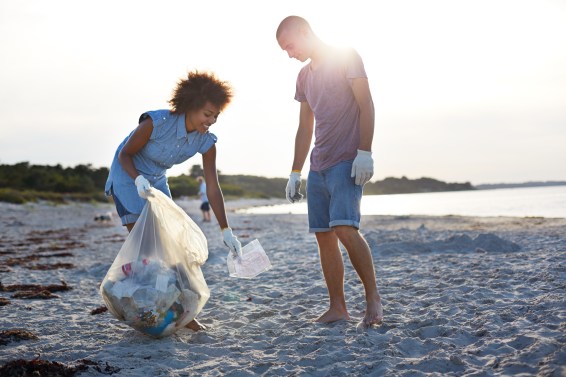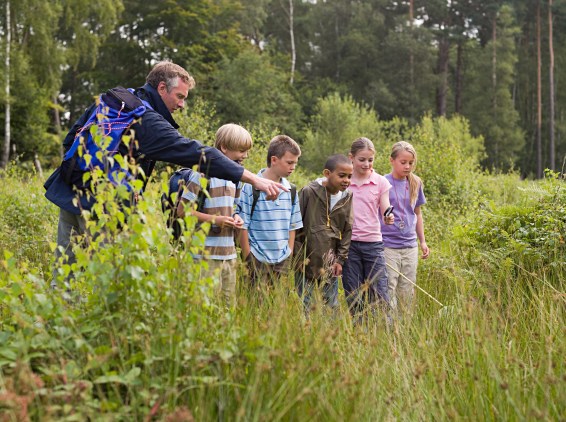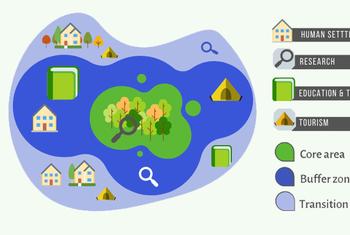
Many people think of New Year’s resolutions and brainstorm ways to improve their lives for the coming year. What if we extended those resolutions to include resolutions that are beneficial to our communities, society, or the planet?
This might not be a common approach, but it can open up your horizons and show you how you can be of assistance to others.
These are four popular New Years resolutions that will help you improve your relationship with the natural world in 2022 and beyond.
1. Take more care to consider how your actions may impact the environment
Each of us has an environmental ethic that reflects how we value, manage, and ultimately relate with nature. Balance between us and nature can improve our relationship in many ways by balancing the scales for reciprocity (how much we give/take). A mishandled relationship to nature, whether it’s our addiction to plastics that end up in landfills or our love for fossil fuels that heat the Earth, is not good for us or the Earth.
We all have a greater responsibility to reduce the environmental impact of our actions in 2022. We can also encourage governments, businesses, and other organizations to make it easier to protect the environment for people with different socioeconomic backgrounds. This includes making it affordable for recycled goods and making reliable public transportation available.

The U.S. Environmental Protection Agency has many resources that will help you reduce waste at work, home, in your community, and during holidays. The website offers tips such as turning off or unplugging lights throughout the day, reusing packaging material, and using online billing instead of paper mail.
2. Reduce the burden of social injustice. It also harms nature.
Multiple aspects of society are affected by social injustice. Inequality and racism can lead to health disparities and have negative effects on the natural environment.
Recent research has shown that redlining and residential segregation lead to inequal access to nature, excessive pollution, and biodiversity loss. These practices led to the construction of highways and industries that have a negative impact on environmental quality in communities that are marginalized. They also made it harder for people to find parks and trees that provide cooling during summer and are beneficial to the planet.

Perpetuating social ills such as systemic racism or inequitable resource allocation is harmful to the environment, marginalized persons, and society as a whole.
Your voice can help turn the tide in your community. Join groups that promote environmental protection and social justice, and bring nature back to your community. Call your state, city, and congressional leaders to urge them take action. For concrete ways to make diversity initiatives work in your workplace, see the Green 2.0 reports section.
3. Learn more about nature and how to minimize harm to the environment and yourself
Clean air, clean water, and healthy soil are vital for our survival. However, research has shown that many people lack basic knowledge about environmental and health literacy in order to protect their health.
Get to know your environmental impact in 2022. Learn more and begin to explore ways to preserve the integrity your area’s natural resources. Find out where you can keep up-to-date with local land-use decisions, which impact the environment and your entire community.
Local educators can also be supported and encouraged by you to integrate the environment into your lessons. There are many subjects that relate to environmental issues, including history, health, and education. This websiteIncludes a framework and materials to assist educators in helping students increase their environmental literacy.

Staying connected with media that discuss current research can help increase awareness. You might also consider incorporating environmental knowledge and facts into your team-building and game night activities.
4. Spend more time outdoors with your family and friends
Studies have shown that spending time outdoors, including in urban green spaces can improve your relationship to nature and with others.
Spending time in nature can improve social cohesion. Many people discovered that the outdoors was a great place to relax and reduce stress in the wake of the pandemic. Spending more time outdoors can increase social interaction that benefits health, buffer emotional distress, encourages use of these spaces, and can help them to be better prepared for the future.
Here are some tools to help you improve parks and recreation close to your home. Here are some ways to make outdoor spaces more inclusive for diverse families.
We can all think about how we relate to nature and find ways to protect it. This will help us be better stewards on the planet.
Viniece Jennings works as an assistant professor in public health at the University of Toronto. Agnes Scott College.
This article is republished with permission from The Conversation


